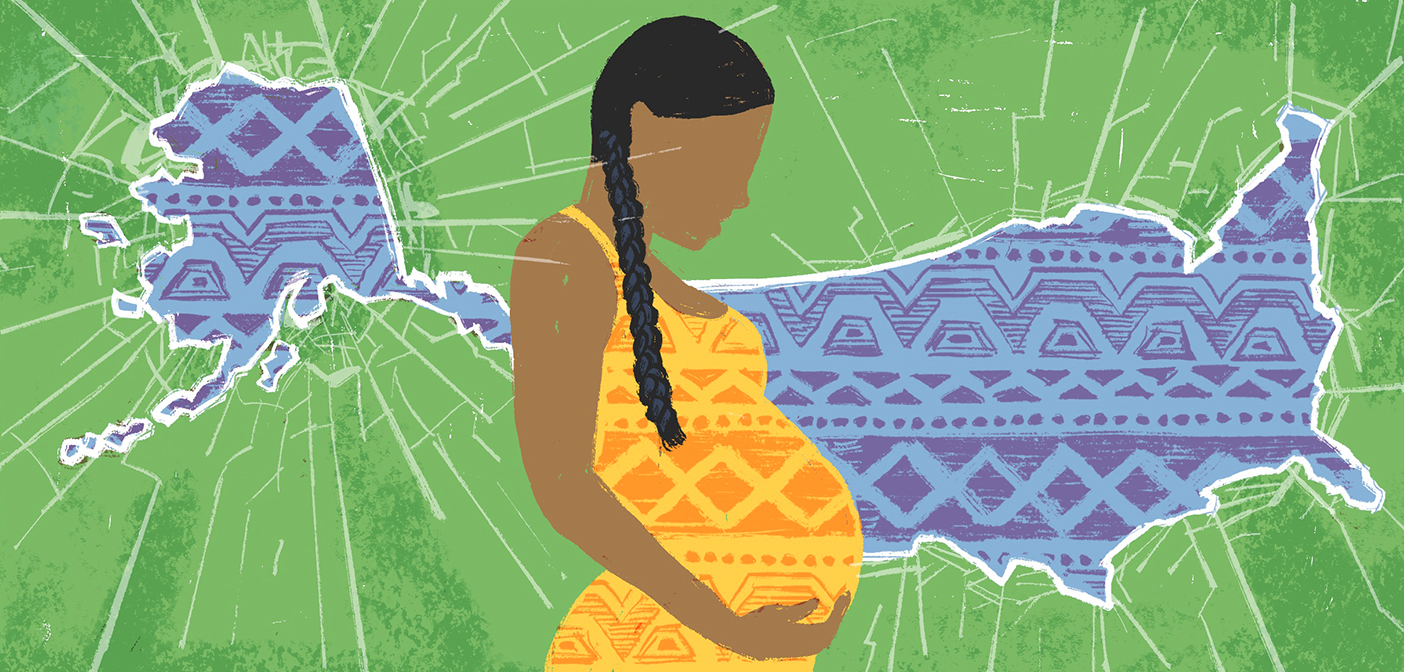ILLUSTRATIONS BY ANDY SNAIR
It’s impossible to undo centuries of societal harm overnight. In “Status of Maternal Cardiovascular Health in American Indian and Alaska Native Individuals: A Scientific Statement From the American Heart Association (American Heart Association Journals),” a team of researchers led by the Johns Hopkins School of Medicine’s Garima Sharma and School of Nursing Senior Research Associate Allison Kelliher is blunt in its assessment of how cardiovascular disease and maternal death—along with poverty, racism, substance abuse, and other social challenges—became such a gloomy picture for these groups.
“A multitude of [social] and historical determinants of health, including history of genocide, decimation of tribal governance, forced removal from homelands, breach of treaty obligations, and forced boarding school participation among American Indian/Alaska Native children, have led to intergenerational trauma and its associated poor health outcomes. … Unethical research practices, including forced sterilization, and culturally insensitive studies have resulted in mistrust of the research community as well as a deep mistrust of the federal government.”
The answer begins, the authors write, with addressing, evaluating, and optimizing the cardiovascular health “with a focus on prevention, policy, and cultural humility and safety”—free of judgment and stigma. Also: Earning buy-in of policymakers, health care professionals and systems, tribal governing structures, and local community engagement. “Health systems and community-based organizations that identify trauma and teach and celebrate resilience are essential.”
The window of opportunity: “Many American Indian/Alaska Native communities consider pregnancy a sacred time for passing traditional wisdom to the expectant parents. Because women may be more likely to make healthy lifestyle changes—more for their children than for themselves—this can be an ideal time to encourage women to improve their heart health.”
